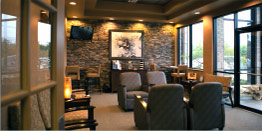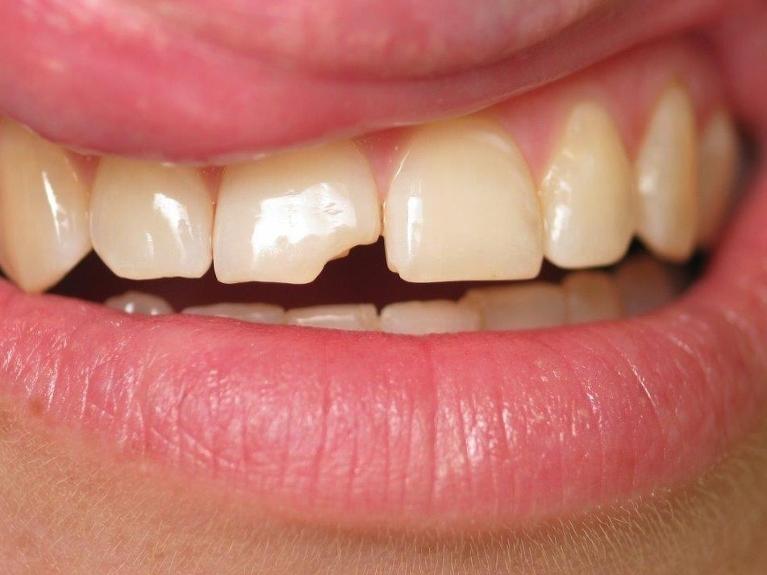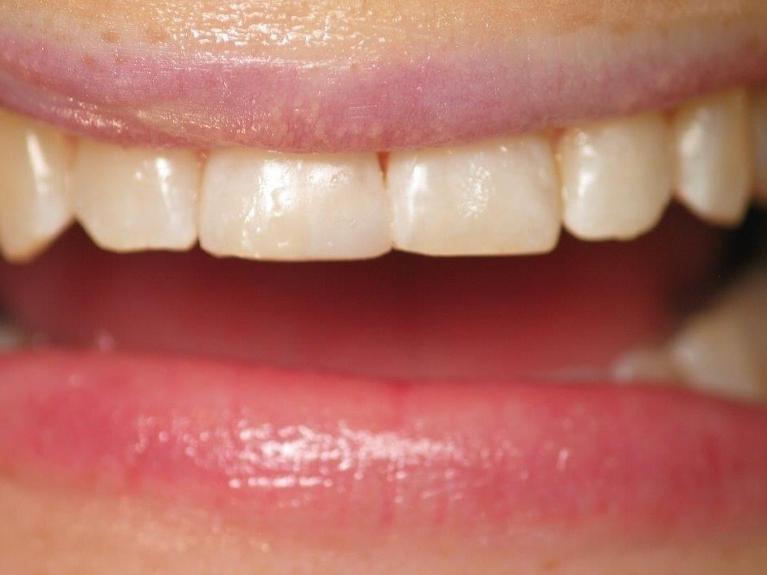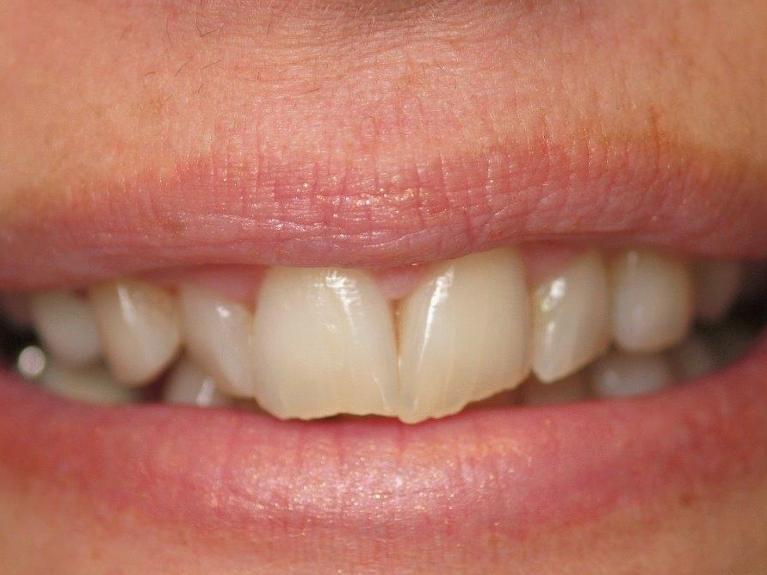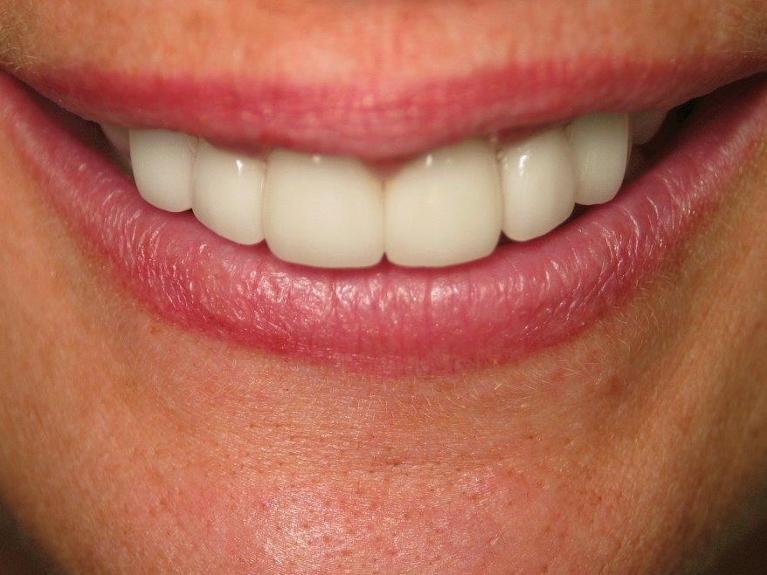
Dental Veneers in Jonesboro, AR
Serving the Jonesboro, AR community
Have you ever wanted a perfect smile? Perhaps you have had concerns about your smile your entire life and you just now decided it was time to do something about it.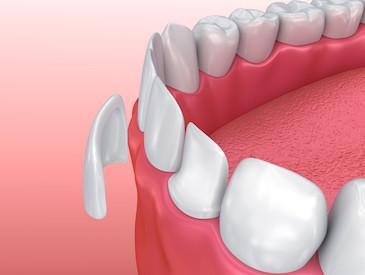
We completely understand.
Your smile is your calling card. It lets people know that you are friendly and approachable. If you cover it up or feel self-conscious about it, you might be sending the wrong signals to those around you. Since your smile is an expressive part of who you are, being proud of it is important.
We are here to help. If you would like to make a dramatic improvement to your smile, porcelain dental veneers may be the perfect solution for you.
- How do porcelain veneers work?
- What aesthetic problems do veneers fix?
- What is the procedure for getting veneers?
- What’s the difference between direct and indirect veneers?
- Who should get veneers?
- What are some benefits of porcelain veneers?
- How soon can I get my veneers?
- How should I care for my porcelain veneers?
- Are porcelain veneers permanent?
- I’d like to learn more about veneers. How can I get started?
How do porcelain veneers work?
Porcelain veneers are thin shells that cover the front surface of your teeth. This allows us to make changes to your smile without lengthy procedures such as orthodontics. Veneers completely cover your natural tooth structure, so even if your teeth are crooked or you have gaps, we can often improve your appearance with veneers.
If you have dark teeth or you suffer from problems such as decalcification, veneers can help. In fact, for people who have problem teeth, veneers offer hope and comfort.
What aesthetic problems do veneers fix?
Porcelain dental veneers are one of the most versatile cosmetic treatments we offer at our Jonesboro dental practice. There are many typical smile flaws that Dr. Bartels addresses with porcelain veneers.
- Chipped or broken teeth
- Oddly shaped or irregular teeth
- Uneven gaps and spaces between teeth
- Severely stained teeth that resist whitening
- Mild tooth misalignment and crowding
If you aspire to a smile that’s balanced in appearance, please call us to arrange a commitment-free consultation with Dr. Bartels to learn more about porcelain veneers and what they can do for your smile.
What is the procedure for getting veneers in Jonesboro?
The first step when creating your veneers is to examine your smile and determine the best way to achieve the results you want. We will look at the shape of your smile as well as the size of your teeth and create a treatment plan to give you a natural, beautiful smile makeover.
- Once we agree on the appearance of your new restorations, we take the following steps:
- Prepare your teeth for the veneers by removing a small amount of the tooth surface.
- Take impressions of the prepared teeth which we use to make temporaries, and that our custom lab uses to fabricate your veneers.
- Have you return to our office in about two weeks to have your final veneers adjusted for fit and bonded to your teeth.
Your veneers will look great and last a long time with proper care and maintenance.
What’s the difference between direct and indirect veneers?
Both direct and indirect veneers create a new tooth surface to conceal the problems beneath it, but they go about it in different ways:
Direct Veneers
For direct veneers, we use a tooth-colored composite material that looks very similar to dental enamel. Dr. Bartels custom colors the material to match the shade of your teeth and provide a seamless appearance. He builds up layers of the composite to alter the appearance of teeth with chips, breaks, severe staining.
The benefit of choosing direct veneers are:
- They cost significantly less than indirect veneers.
- The procedure can often be completed in one visit.
- We don’t have to alter your underlying tooth structure.
Indirect Veneers
There are several instances where indirect porcelain veneers outperform composites:
- Dental porcelain has an appearance that closely mimics natural enamel
- Porcelain veneers are strong, and the smooth surface resists staining
- When properly cared for, indirect veneers can last ten years or longer, while direct veneers need to be replaced every five to seven years.
During our initial consultation, Dr. Bartels will explain the pros and cons of each and help you decide which best fits your needs.
Who should get veneers?
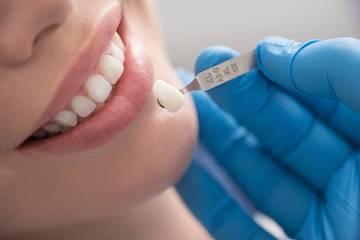 Generally speaking, if you are in good oral health, you are a candidate for porcelain veneers. However, there are a few things you should be aware of:
Generally speaking, if you are in good oral health, you are a candidate for porcelain veneers. However, there are a few things you should be aware of:
- We can’t place veneers unless your teeth and gums are healthy, so decay and gum disease must be addressed first.
- Teeth grinding or bruxism can chip or crack veneers, so if this is a problem for you, ask us about a custom nightguard to protect your investment.
- Your veneers will need to be replaced every ten years or so, but since we need to alter your teeth to accommodate them, the procedure itself is irreversible.
If you aren’t sure veneers are the right choice for you, please call us to arrange a consultation with Dr. Anthony Bartels. He will evaluate your current oral health needs to see whether you are a candidate for veneers or if we need to improve your oral health before the procedure
Our Team
-

Dr. Anthony Bartels DDS
Dr. Bartels attended Arkansas State University, where he earned a bachelor's of science degree in zoology. He earned his Doctor of Dental Surgery degree at Louisiana State University.
Dr. Bartels is on the Board of Directors at St. Bernard’s Hospice and a staff member of St. Bernard’s Regional Medical Center. Dr. Bartels was voted “Best of the Best” by Occasions Magazine and KAIT8 television viewers. He received an award for many years of volunteer service to the Women’s Crisis Center of Northeast Arkansas in 2014, as well as the “Outstanding Young ...
Read More
What are some benefits of porcelain veneers?
Both direct and indirect veneers create a new tooth surface to conceal the problems beneath it, but they go about it in different ways:
Direct Veneers
For direct veneers, we use a tooth-colored composite material that looks very similar to dental enamel. Dr. Bartels custom colors the material to match the shade of your teeth and provide a seamless appearance. He builds up layers of the composite to alter the appearance of teeth with chips, breaks, and severe staining.
The benefits of choosing direct veneers are:
- They cost significantly less than indirect veneers.
- The procedure can often be completed in one visit.
- We don’t have to alter your underlying tooth structure.
Indirect Veneers
There are several instances where indirect porcelain veneers outperform composites:
- Dental porcelain has an appearance that closely mimics natural enamel
- Porcelain veneers are strong, and the smooth surface resists staining
- When properly cared for, indirect veneers can last ten years or longer, while direct veneers need to be replaced every five to seven years.
During our initial consultation, Dr. Bartels will explain the pros and cons of each and help you decide which best fits your needs.
Who should get veneers?
 Generally speaking, if you are in good oral health, you are a candidate for porcelain veneers. However, there are a few things you should be aware of:
Generally speaking, if you are in good oral health, you are a candidate for porcelain veneers. However, there are a few things you should be aware of:
- We can’t place veneers unless your teeth and gums are healthy, so decay and gum disease must be addressed first.
- Teeth grinding or bruxism can chip or crack veneers, so if this is a problem for you, ask us about a custom nightguard to protect your investment.
- Your veneers will need to be replaced every ten years or so, but since we need to alter your teeth to accommodate them, the procedure itself is irreversible.
If you aren’t sure veneers are the right choice for you, please call us to arrange a consultation with Dr. Anthony Bartels. He will evaluate your current oral health needs to see whether you are a candidate for veneers or if we need to improve your oral health before the procedure.
What are some benefits of porcelain veneers?
Aside from the aesthetic improvements veneers can make to your smile, there are other benefits to choosing them:
- Veneers are stronger and last longer than composite dental bonding
- The material we use closely mimics the translucent appearance of dental enamel
- The smooth, glasslike surface resists staining from deeply colored foods and drinks
- More conservative than a crown because we can preserve more tooth structure
How soon can I get my veneers?
It can be exciting to anticipate the beautiful results that veneers offer. But as with any cosmetic dental procedure, we need to ensure that your teeth and gums are healthy. Most people are good candidates for dental veneers, but there are a few underlying issues we need to address first:
- Tooth decay – Placing veneers on decayed teeth is like painting crumbling walls; yes, they may look better for a while, but the structural issues will continue to worsen. Likewise, your teeth need to be cavity-free before we place veneers.
- Gum disease – One of the symptoms of gum disease is bleeding and swollen gums. This interferes with taking accurate impressions and can result in a less-than-favorable result.
- Teeth grinding – Also referred to as bruxism, this is a destructive habit that compromises the health of all your teeth and makes veneers prone to chipping or fracturing.
If you have any of these underlying issues, Dr. Bartels will work with you to develop a treatment plan to resolve them and get your smile ready for veneers.
How should I care for my porcelain veneers?
 Veneers are quite durable, but to avoid damaging them, you should avoid biting down on foods like hard nuts or chips, or popcorn, and eliminate habits like chewing ice. It’s not difficult to care for veneers, but maintaining your overall oral health will extend the longevity of your veneers.
Veneers are quite durable, but to avoid damaging them, you should avoid biting down on foods like hard nuts or chips, or popcorn, and eliminate habits like chewing ice. It’s not difficult to care for veneers, but maintaining your overall oral health will extend the longevity of your veneers.
Staying current with your preventive exams and professional dental cleanings gives our team the chance to check the condition of your veneers on a routine basis. Excellent gum health is essential to the longevity of your veneers, and these visits also allow us to identify conditions like decay and gum disease that could threaten your restorations.
Are porcelain veneers permanent?
When cared for properly, dental veneers can last as long as ten years— longer in some cases. While you will need to replace them eventually, the procedure itself is considered permanent. This is because we need to alter the shape of your teeth to accommodate the crowns, which is an irreversible process.
I’d like to learn more about veneers in 72401. How can I get started?
It can be exciting to think about transforming your appearance with veneers, and we want to help you with your smile makeover journey.
Get started by booking a consultation at Anthony Bartels Family Dentistry. He and our entire team at our Jonesboro dental office can’t wait to help you achieve your health and appearance goals for your smile.





